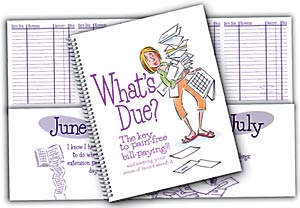Our family recently returned from a week of vacation, and I’m proud to report that the Kids’ Fun Fund that I mentioned a few months ago worked just as I had hoped. Throughout 2009, my kids have been doing little chores around the house, chores for which they can earn a little money. A portion of this money gets deposited into the Kids’ Fun Fund – just a plastic square container decorated with their names and labeled Kids’ Fun Fund.
The purpose for our Kids’ Fun Fund was pretty specific. Our kids love to go to an arcade – a very specific arcade – located about fifteen minutes from where we go on vacation. This arcade is really more than just an arcade, it’s more like a small-scale amusement park, complete with miniature golf course and go-carts. My kids, for some reason, just really like to this particular arcade.
Last January, when we started to plan for our vacation, I asked my kids what they thought about creating a Fun Fund, so that they could save up a big pile of coins to use at the arcade. They really took to the idea an the Kids’ Fun Fund was born. You can click this link to read more details about the Kids’ Fun Fund.
The Kids’ Fun Fund really worked. Our kids worked hard – and worked hard together – to earn money for the Fun Fund. They were both so proud, when we were preparing for vacation, to pack their big jar of coins. When we arrived at the arcade, we all stuffed our pockets with quarters, and headed inside. The kids had a blast and it was great to see them enjoy the reward for their labors.
It’s cool to note that the kids could have spent every penny in their Fun Fund, but they chose not to do so. In fact, they used just a small portion of the money that they had saved. Now, they are in the process of deciding exactly what to do with the rest of the Fun Fund. I’ll guide them as they make the decision, but I’ll leave the final choice up to them. Whatever they do, I’m super-proud of my kids. They set a goal, worked hard to achieve it, and then had a blast at the arcade. Success!
Follow me via Twitter
Article by:
No Credit Needed: The Success Of The Kids’ Fun Fund


